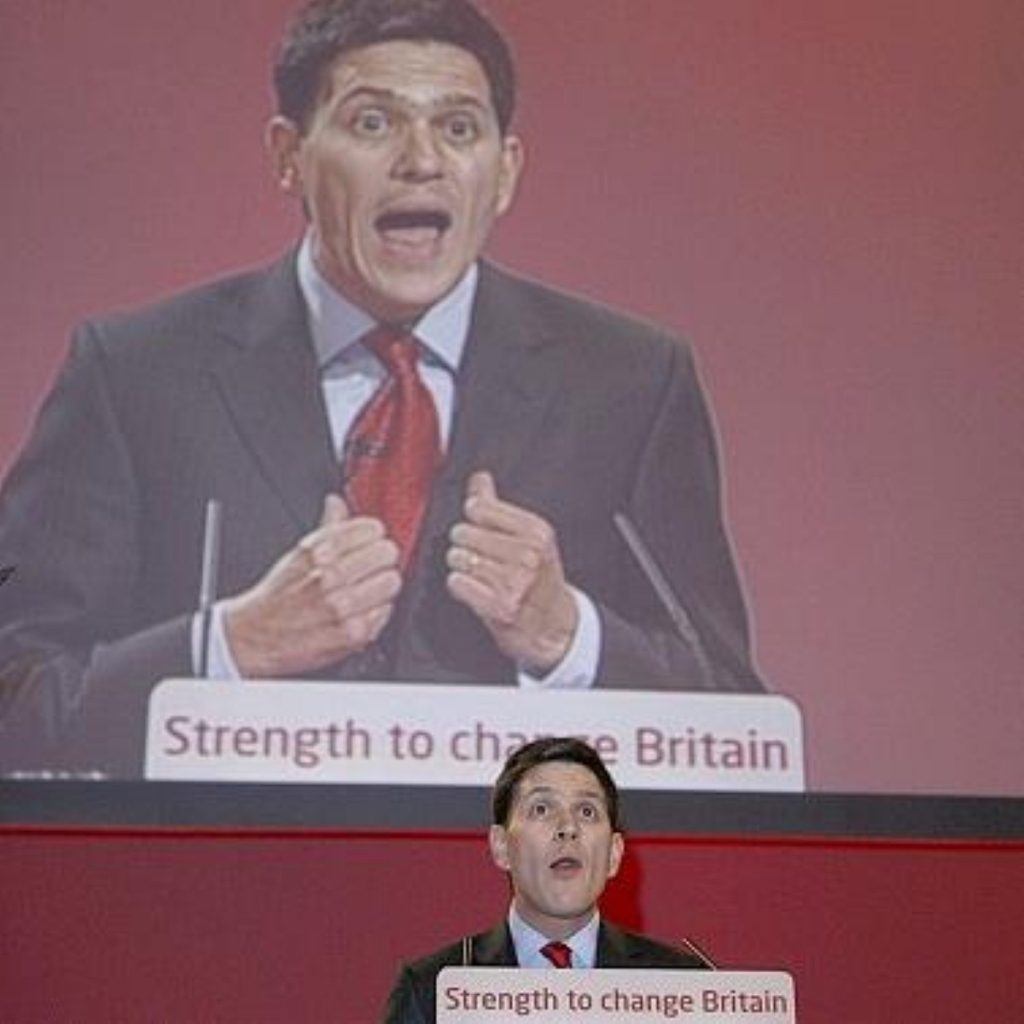Miliband refuses to deny leadership ambition
Foreign secretary David Miliband has refused to deny his leadership ambitions at a joint press conference with his Italian counter-part.
Asked repeatedly by journalists if he would rule out running for leadership should Gordon Brown resign, Mr Miliband refused to answer the question.
But Mr Miliband did confirm his support for Mr Brown. Addressing the omission of any reference to Mr Brown in his Guardian article published today, Mr Miliband said: “It was an article whose second paragraph said the debate had to be about issues.
“I believe the future of this country depends on a clear policy agenda and a sense of where Britain can be.


“Does Gordon have those values and that vision? Yes. Gordon Brown is a good leader with good values.”
But when asked if Mr Brown would lead Labour into the next general election Mr Miliband used a subtly different formulation, speaking about whether he could.
“Can Gordon lead us? Yes,” he said.
The foreign secretary earlier criticised Labour’s communication with the public, in an article which was widely interpreted as being laced with leadership-challenging overtones.
Mr Miliband conceded the government’s failings on a wide range of issues in the article, published in today’s Guardian newspaper.
He said the NHS should have been reformed “sooner”, more devolution of power to town halls should have been achieved and a plan to “win the peace in Iraq” should have received “better planning”.
The foreign secretary did not mention embattled prime minister Gordon Brown by name but criticised Labour’s ability to communicate with the public.
“When people hear exaggerated claims, either about failure or success, they switch off. That is why politicians across all parties fail to connect,” he writes.
Mr Miliband admitted the government faces tough odds at the next general election but refused to concede defeat for his party is inevitable, despite the temptations of “fatalism”.
Much of the article was focused against the Conservatives, who Mr Miliband dismissed forcefully. He described Tory leader David Cameron as a “politician of the status quo” and says he is stuck “reconciling himself to New Labour Mark I at just the time when the times demand a radical new phase”.
Mr Miliband quickly went on to qualify the latter suggestion by discussing the new challenges posed by the economy and public services. In doing so, many analysts suggested he is quietly suggesting to Labour how a new leader might approach the problems the party faces.
“I really believe that it is only our means, the political creed of the Labour party combining government action and personal freedom, that can achieve the ends the Tories now claim to share,” he continued.
“They insist on traditional Tory means of charity, deregulation and lower spending to deliver them. It doesn’t add up.”
Mr Miliband concluded: “New Labour won three elections by offering real change, not just in policy but in the way we do politics. We must do so again. So let’s stop feeling sorry for ourselves, enjoy a break, and then find the confidence to make our case afresh.”
The news comes as Harriet Harman was forced to deny reports of her own leadership aspirations.
Ms Harman is said to have responded to the news of Labour’s defeat in Glasgow East with the phrase: “This is my moment.”
In a statement, she said: “I am not preparing the ground for a leadership election.
“In respect of Labour’s defeat in the Glasgow East by-election, I did not tell aides – or any one else – that ‘this is my moment’.”









